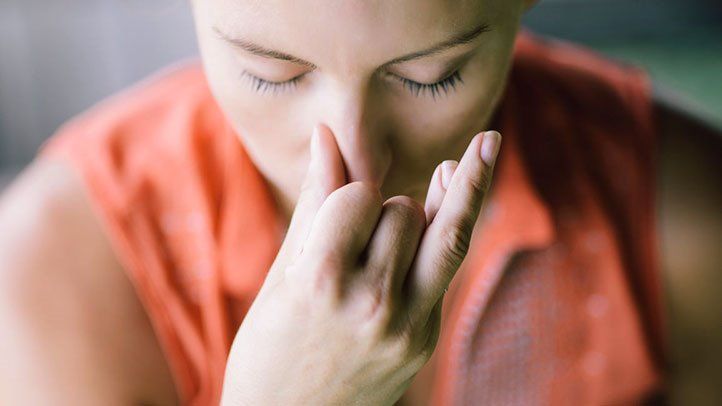When you’re working hard, it’s important to take the time to breathe. Not only does it help you stay focused and motivated, but it can also help your body heal and recover. In this blog post, we’ll introduce you to 10 Breathing Tips That You Might’ve Never Heard Of But Should Work. From deep breathing exercises to meditation, these tips will help you relax and rejuvenate both mind and body.
How to Breathe Correctly
If you’re like most people, you take a breath in and hold it for a second or two. But did you know that there are different types of breathing? And that by practicing the right kind of breathing, you can improve your overall health? There are three main types of breathing: diaphragmatic, abdominal, and chest. Here’s how to do each:
1. Diaphragmatic Breathing: This type of breathing is most common in animals and is used to breathe in and out deeply and evenly. To do diaphragmatic breathing, start by taking a deep breath in through your nose. Hold the breath for a couple of seconds, then exhale through your mouth slowly and completely. Repeat six or seven times.
2. Abdominal Breathing: When you do abdominal breathing, you breathe in air from your stomach and push it out through your mouth. To do this, first place your hand on your bellybutton to help guide the breath in. When you inhale, let the air flow into your stomach instead of trying to force it out through your mouth. Then push the air out through your lips as fast as possible while still keeping a calm voice. Try to do twelve breaths this way before switching to diaphragmatic breathing.
3. Chest Breathing: Chest breathing is usually used when we’re active—like running or playing tennis—because it allows us to take quick breaths without having
How to Breathe Deeply
Breathing deeply is important for a variety of reasons. It can help you feel relaxed and stress-free, improve your concentration, and even boost your immune system. Here are some breathing tips that you might’ve never heard of but should work:
1. Sit up tall and focus on your chest. When you breathe in, align your spine with the curve of your back and let all the air flow into your lungs from your stomach. When you breathe out, release all the air from your lungs smoothly and steadily, without making any noise or stressing yourself out.
2. Try not to hold your breath. When you inhale, allow the air to flow into your lungs as fully as possible. Once the breath is in, don’t clamp down on it; just let it go and relax. Similarly, when you exhale, release the breath slowly and evenly – don’t force any air out.
3. Practice deep breathing every day. Whether you do it right before bed or right before a stressful situation comes up, incorporating deep breathing into your routine can help you relax more easily and get more out of each day.
4. Follow the 3-2-1 rule: Inhale for three seconds, hold for two seconds, then exhale for one second. This will help you calm down and focus better during difficult situations or stressful moments.
How to Breathe Easily
There are several breathing techniques that can help you to breathe more easily and with greater ease. These tips might be new to you, but they should work just as well as the more common methods.
When you’re trying to breathe more easily, it’s important to focus on your breath. Start by taking a deep breath in, and then hold it for a second or two before letting it out slowly. Try to keep your breath slow and even throughout the entire process.
Another helpful technique is known as “belly breathing”. This involves taking a deep breath in through your nose, and then filling your stomach with air before letting it out through your mouth. This will help to increase the amount of air that goes into your lungs, which will in turn make breathing easier.
If you find that you’re struggling to breathe easily, try using a stress ball or something else firm and spherical to massage your chest area while breathing deeply from your belly. This will help expand the area of your ribcage which will increase the amount of air that can enter your lungs.
Finally, if all else fails, take a few slow breaths through straws or other small tubes placed into your nose until you start feeling better. The act of taking these short breaths should help focus and clear your mind so that you can begin breathing more easily again.
How to Breathe More Effectively
Breathing is one of the most important things you can do to improve your physical and mental well-being. Proper breathing helps regulate blood pressure, maintains a healthy heart rate, and suppresses stress hormones. However, many people don’t breathe properly because they don’t know about some of the simple techniques that work.
Here are five breathing tips that you might’ve never heard of but should work:
1. Take a deep breath every time you sit up. This will help to clear your head and wake up your body.
2. Practice diaphragmatic breathing. This is when you breathe in through your stomach and out through your chest. Doing this will help to reduce stress and increase energy levels.
3. Use visualization exercises to improve your breathing habits. Picture yourself taking deep breaths and feeling calm and relaxed throughout the process.
4. Try Alternate Nostril Breathing (ANB). This involves Breathing In Through One Nostril And Holding Your Breath For A Second Seconds Before Breathing Out Through The Other Nostril . It’s claimed to be helpful in calming the mind and relieving anxiety symptoms .
5. Counting To 10 Whenever You’re Having Trouble Breathing can help to take control of the situation . Once you reach ten, slowly release the breath by counting back from ten again
AirPhysio
If you’re like most people, you take a breath in and out without really thinking about it. But there are some interesting breathing tips out there that can help improve your health. Here are five surprising breathing tips you might want to try:
1) Breathe through your nose. This is probably the most common breathing tip, but it’s also one of the most important. When you breathe through your nose, you help to avoid congestion and inflammation in your nose and throat, both of which can be caused by breathing problems.
2) Practice deep breathing exercises. Deep breathing exercises help increase air flow and circulation throughout your body. Some easy deep breathing exercises to try include counting to 10 or taking a long, slow breath in through your nose and out through your mouth.
3) Take breaks from breathing every few minutes. If you’re constantly taking short breaths, your body will start to get used to it and may start to struggle to breathe normally. Take a few deep breaths every few minutes to give your body time to adjust and relax.
4) Stay cool during hot weather activities. One of the biggest contributors to having a difficult time breathing is heat exhaustion or heat stroke. Make sure you drink plenty of fluids and stay cool by wearing loose-fitting clothing and using sunscreen if sunbathing outside during hot weather activities.
5) Drink plenty of water throughout the day.”
How to Breathe With Stress
There are a few things that you can do to help ease the stress that you may be experiencing. One is to take some deep breaths. Deep breathing will help clear your mind and allow you to focus on other tasks. Another tip is to count out loud while taking deep breaths. This will help focus on your breathing and keep your mind occupied while you’re trying to relax. Finally, consider practicing yoga or another form of mindfulness meditation. These exercises will help you focus on your breath and calm yourself down.
How to Breathe When You’re Sick
When you’re sick, your breathing changes in several ways. For one, your body starts to produce more mucus. Mucus is a protective layer that helps keep the respiratory system clean and healthy. When you have a cold, your nasal passages get congested which can also make breathing more difficult.
To breathe easier when you’re sick, try the following tips:
1) Practice deep breathing exercises. When you take deep breaths, it sends oxygenated blood to your entire body instead of just your lungs. This will help keep you feeling stronger and improve your overall health. Practice these exercises before getting sick and continue doing them throughout your illness if possible.
2) Suck on ice chips or popsicles to clear your throat and reduce congestion. This icy relief will also cool down your nasal passages so they don’t become too hot and irritated.
3) Drink plenty of fluids. Not only will this help neutralize the acids that come out when you are sick, but it will also help thin out the mucus in your respiratory system. Try drinking warm liquids (not hot), avoiding carbonated drinks, and staying away from caffeine as much as possible—all of which can make symptoms worse.
4) Avoid smoke and pollution while you are sick. These things can irritate your pulmonary system even further, making it hard to breathe properly. If you must smoke or be around pollutants, try to do so outside or
10 Tips for Better Sleep
Breathing is one of the most important things you can do to improve your sleep. Here are four breathing tips that you might’ve never heard of but should work to help you get a better night’s sleep:
1. Practice deep breathing. When you practice deep breathing, your body learns to relax and fall asleep. Inhale deeply and hold your breath for three seconds. Exhale slowly and completely. Repeat this process seven times.
2. Control your stress level before bedtime. Before bed, try to relax your mind and body by doing some deep breathing exercises, reading a calming book or listening to relaxing music. Spend some time in nature if possible too, since it has been shown to have a positive effect on sleep.
3. Avoid caffeine late in the day. Too much caffeine can keep you awake at night because it speeds up the brain’s natural energy production. Stick to moderate amounts of caffeine during the afternoon and evening hours if you want a good night’s sleep.
4. Keep your bedroom cool and dark . Temperatures in the bedroom tend to rise around 50 degrees Fahrenheit within an hour of falling asleep so cool down the room before bed by opening the windows or turning on a fan or air conditioning unit if necessary 。 Turn off all light sources (including electronics) 30 minutes before retiring for the day
10 Tips for Better Digestion
If you’re having trouble with your digestion, there are some breathing tips that you might’ve never heard of but should work. Here are a few:
1. Try to take deep breaths throughout the day. This can help improve your digestion by increasing oxygen and carbon dioxide levels in your blood.
2. Avoid restrictive clothing when possible. Tight clothes can cause constriction in the airways and make it more difficult for your digestive system to function optimally.
3. Eat slowly and chew well. Taking time to chew helps break down food properly and promotes healthy digestion overall.
10 Tips for a Happier Life
There are a few things you can do to increase your happiness on a daily basis. These include things like making time for yourself, surrounding yourself with positive people, and exercising regularly. However, breathing is one of the most important aspects of a happy life because it helps to regulate emotions and stress levels. Here are five breathing tips that you might’ve never heard of but should work:
1) Practice deep breathing exercises: One way to increase your happiness is by practicing deep breathing exercises. This involves taking in air through your nose and holding it for a count of four before exhaling slowly. Doing this every day can help to calm your mind and reduce stress levels.
2) Try aromatherapy: Aromatherapy can also be helpful in increasing your happiness. This involves using scents such as lavender or peppermint essential oil to enhance the mood. Simply diffuse these oils in a room where you want to feel happy and relax!
3) Smile often: Smiling has been shown to be associated with happiness and well-being. In fact, research has even shown that smiling reduces the risk of heart disease and mortality! So why not make an effort to smile more often? It will definitely make you feel happier!
4) Connect with nature: Spending time outdoors in nature has been shown to have many benefits, including increasing happiness levels. This is because spending time outside allows us to connect with our surroundings and take in natural sunlight.



